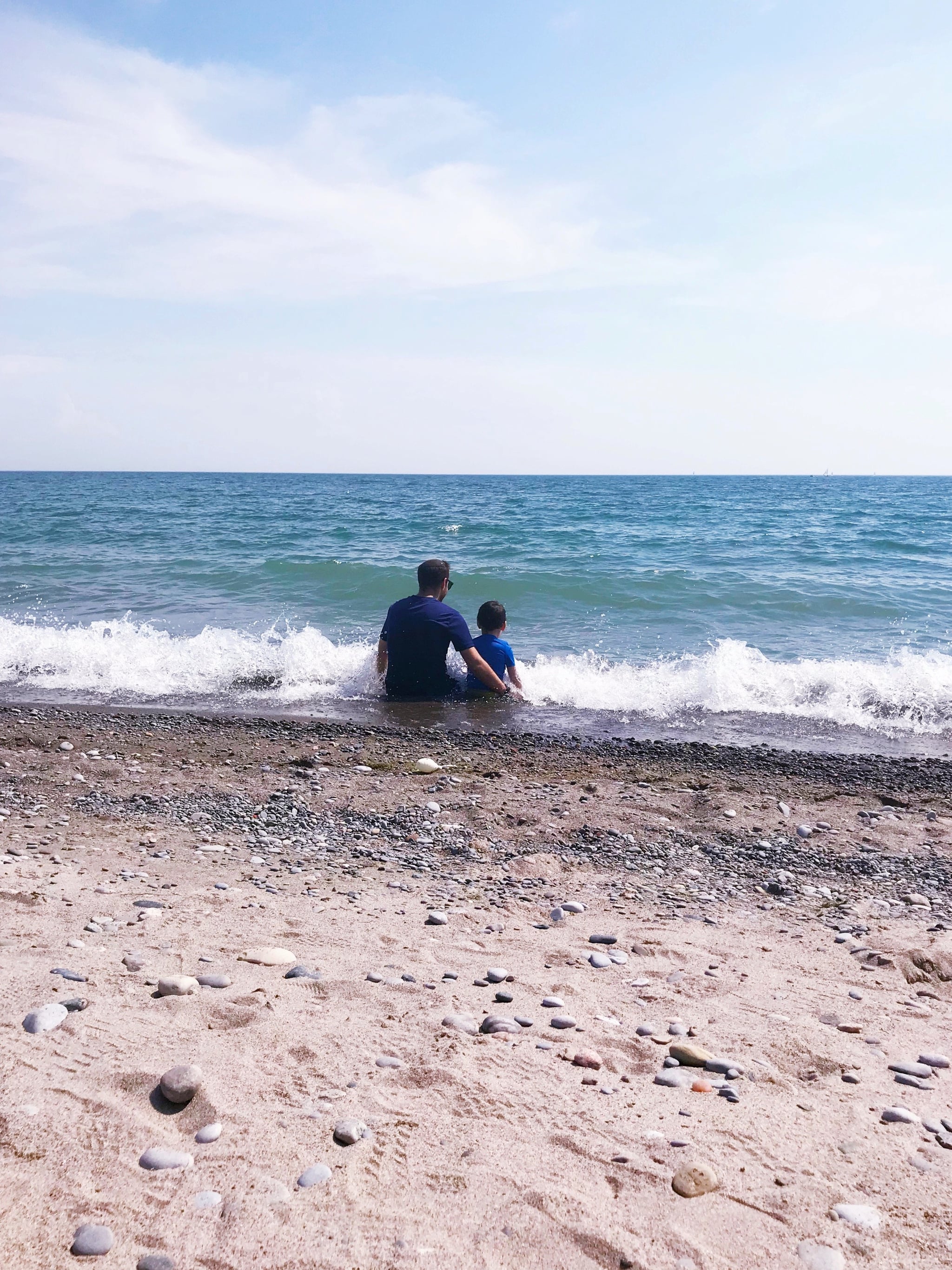
For the last six years and counting, autism has been an intrinsic part [1] of my families lives. My son fundamentally connects to the world differently than everyone around him. It is both challenging and undeniably beautiful. His ability to be completely genuine, to always put his most authentic self forward, to be unfailingly honest, and to always move through life with determination is inspiring. That isn't to say that he doesn't struggle. For years he was unable to effectively communicate, with those skills only recently emerging. While it is his diagnosis, and I'll always be the first to say I'll never know what it means to think or see the world in the way that he does, autism still has affected my life, as well as those of his father and our two younger children. It has coloured every interaction and every decision, and it has always borne a conspicuous presence in our home — one we have been open and positive about it. It is for these reasons that within our walls, our families, our circles of friends, and our community, autism is the furthest thing from being invisible [2].
For years, whenever we were out, my son would stim [3]. He would flap his arms, make repetitive movements, or vocally stim. As I looked around, some people would be staring, others would avert their gaze right away, and yet others would smile and move along. I saw the assumptions, the different diagnoses being assumed, and the confusion. I wondered if he would always be faced with these reactions and if they would change as he got older. That naivety was both a blessing and a curse.
Over the last six months, I worried that the pandemic would mean regression in skills he's worked so hard to attain. Alternately, he blew us away, adapting and focusing his energy [4] on what he had available to him, without the therapy centre and countless hours of services he had accessed daily, before March. His ability to communicate emerged, as did his ability to self-regulate and initiate interactions with his siblings. To say I was in awe is an understatement — I was so excited to help him generalize these skills outside the doors of our home. Attempting to plan outings pre-pandemic was difficult enough, as we had to take into consideration supports and accommodations. Adding in social distancing and closures brought us to a whole new level. After a little research, I came across a stretch of beach on the other side of our city that wasn't very busy. We drove over and had an endless amount of space to ourselves. We spent the day splashing and laughing, grateful to get outside after months indoors and soaking in all of the sunshine. We immediately decided to make this a weekly adventure.
On our next visit, my husband pulled into a parking spot [6] and as we were about to get out of the car a man drove past, asking if we had just arrived or were leaving. My husband indicated that we had just parked. I watched this man pull out of the lot and park on the street, get out of his car and stare at us. I was confused and concerned, but honestly didn't know what to think of it. As we got out of the car, I watched him hold up his cell phone and it was clear he was recording us, as he was speaking and pointing the camera towards us. We were in the process of taking out our wagon and loading up all the bags, sippy cups, snacks, and sand toys that are the hallmark of any family day at the beach. That's when he began to scream some of the most horrible things I had ever heard one person say to another. Wishing horrible things upon us — that we would die, that we were rubbish, and more. He was unquestionably filming my husband and I. Worse, he was also filming my son, who we had taken out of the car first, since he was so excited he couldn't bear to wait one more minute to get to his favourite place. While my happy little boy sat in the wagon, flapping and smiling, encourageing us to move faster so that he could get his toes in the sand and splash in the water, this man continued on his tirade.
We're working so hard to give our son the supports and tools he needs to live an independent and fulfiling life, but what if he accesses accommodations and endures this harassment?
As he approached, the reason became clear. He pointed to the accessibility parking sign [7], above where we had parked. He shouted words regarding that spot that I won't repeat here, but indicated that we showed no use for it and had no right to be parked in it. He yelled all of this at my husband. I could only whisper, "It's not for him, it's for our son." I have spent years passionately advocating for my son, but at that moment, I was frozen. My husband spoke up immediately, and through this man's tirade, he attempted to explain our son's diagnosis. The man continued to hurl his hurtful words and then walked away. It hit me right there and then that we're not always going to be next to our little boy when this happens. We're working so hard to give our son the supports and tools he needs [8] to live an independent and fulfiling life, but what if he accesses accommodations and endures this harassment? What if he sits in a specific spot on the bus and someone yells at him that he doesn't need it? What if, what if, what if? I looked at my son, so happily unaware of what was transpiring around him, and while we were there to defend him at 6 years old, what will happen at 26 or 46?
I have no idea who that man was, I don't know what he did with the video he took and that terrifies me. I spent the rest of that outing crying huge, silent tears on that beach, while my husband and kids ran around and played. That evening I finally pulled myself together and took to my Instagram page. I spoke up. I stopped the endless loop in my head of the horrible words he had thrown at us and replaced them by shining a light on invisible disabilities, to my little corner of the internet. The responses I received were heartbreaking. People commented and messaged me, bravely sharing their own experiences and fears of similar situations happening to them. A whole community of people, who understand firsthand what it is to carry an invisible disability or love and care for someone who does.
Autism can look like flapping or vocal stimming or repetitive movements. It can also look like a little boy, smiling and excited to go to the beach. I can't and won't speak for every parent of a child with special needs, but as far as it goes for us, I would much rather address questions and have a conversation than have my son be stared at, or whispered about, or endure what we did that day. Invisible disabilities exist and the next time you see someone accessing an accommodation, if for even an instant you do not believe they are entitled to it, I beg you to stop and think about my story. That person may be a cancer patient or thriver. They may have mental health challenges and getting to where they are at that point required more than you're able to understand. They may be immuno-compromised. They may have a neurological impairment. They may have a cardiovascular impairment or lung impairment or a whole host of other internal challenges you see nothing of. They may be struggling in ways that a label does no justice to and that you have no right to be informed of.
Autism can look like flapping or vocal stimming or repetitive movements. It can also look like a little boy, smiling and excited to go to the beach.
In Ontario, the province where we live, my son's diagnosis entitles him to accessible parking. It may seem confusing, but when you take into account the factors, including the potential of flight risk, the inability to understand two step directions, or navigate his way through cars in a parking lot, and the safety that increased proximity to the location from the car gives in terms of physical and cognitive demands, it begins to become clearer. In Ontario specifically, the passenger is entitled to accommodation and the driver may only use it when transporting the person whose name is listed on the accessibility permit. This is clarified on the permit itself where "(P) means that the person who is the permit holder can be a passenger only. (P/D) means that the person who is the permit holder can be a passenger or driver [10]." There is an entire process including a practitioner completing the form before it can be submitted. Will there be people who access accommodations who don't need to? Unfortunately, yes. But does that mean that we need to become sceptical of 6-year-olds, or people of any age, employing supports or accommodations to participate in day-to-day life and be a member of society? No, it absolutely does not.
Although that man made me feel helpless in that parking lot, I know that I and my family, and my son especially, are anything but. We have learned from that experience, we've taken it as a teachable moment about tolerance, compassion, and kindness. We will share our story and turn the narrative into one that exposes invisible disabilities and the challenges people face. We will raise our children to be kind, empathetic, compassionate, and strong human beings. We will advocate stronger than before. In all of these ways and more, we'll always be louder than the voices who seek to judge, hurt, and bring us down.

